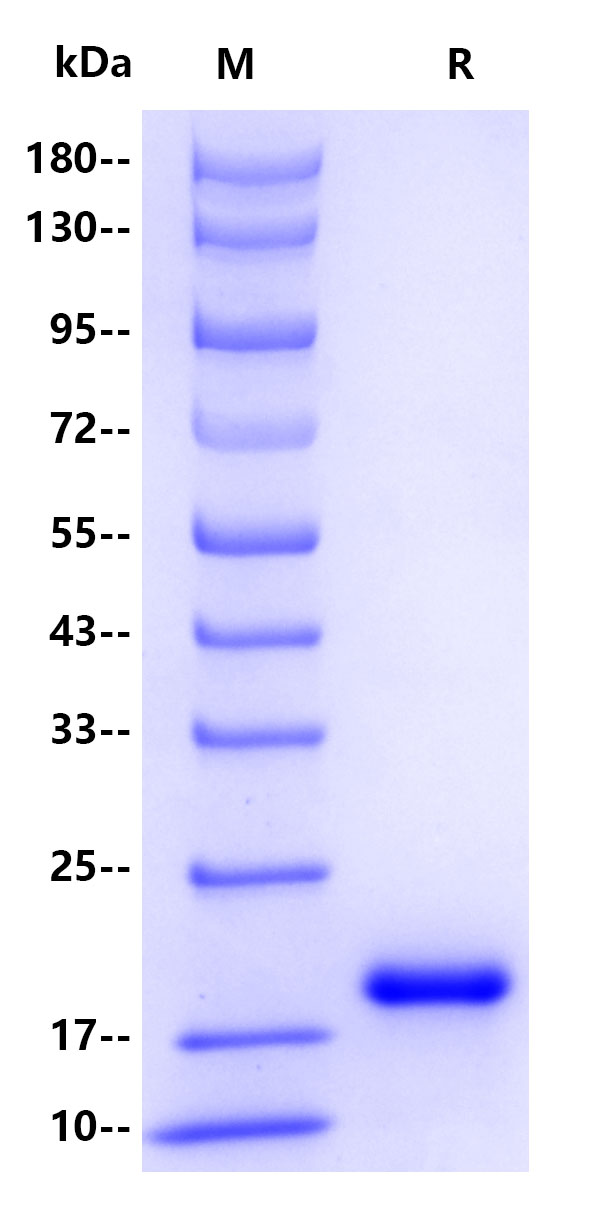Protein sequence(Q65194 Ser54-Leu183, with C-10*His)
SRKKKAAAAIEEEDIQFINPYQDQQWAEVTPQPGTSKPAGATTASAGKPVTGRPATNRPATNKPVTDNPVTDRLVMATGGPAAAPAAASAHPTEPYTTVTTQNTASQTMSAIENLRQRNTYTHKDLENSLGGGGSHHHHHHHHHH
>95% by SDS-PAGE
· 12 months from date of receipt, -20 to -70 °C as supplied.
· 6 months, -20 to -70 °C under sterile conditions after reconstitution.
· 1 week, 2 to 8 °C under sterile conditions after reconstitution.
· Please avoid repeated freeze-thaw cycles.
African swine fever (ASF) is a highly lethal hemorrhagic viral disease of swine that usually results to a mortality rate approaching 100% in domestic pigs and is classified as a notifiable disease by the World Organization for Animal Health (OIE). A number of studies have reported that p54 is one of the most important ASFV proteins and plays a key role in virus morphogenesis and viral infection. Anti-p54 sera were found to inhibit ASFV attachment to susceptible cells, suggesting its role in virus entry. Similarly, p54/E183L gene plays an essential role in virus viability and recruitment of envelop precursors to assembly sites. Most importantly, E183L gene is crucial for virus particle transporting to perinuclear factory via direct binding to light chain 8 (LC8) of the dynein. A short p54 peptide (149–161 aa) near to its C-terminus is enough to bind to dynein light chain 8 (DLC8) and act as a cargo transport for virus particle.
